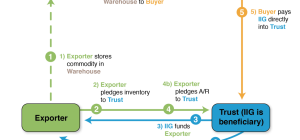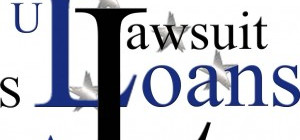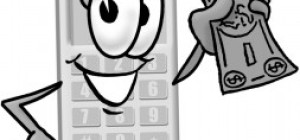 Getting a loan of any kind when you have poor credit can seem like an impossible challenge, especially if you’re self-employed and don’t have a well-known employer to offer up as a reference. While obtaining approval for any conventional loan will typically require a decent credit score and proof of employment/income, there are some sub-prime borrowing solutions available that can be used by people with less-than-perfect credit.
Getting a loan of any kind when you have poor credit can seem like an impossible challenge, especially if you’re self-employed and don’t have a well-known employer to offer up as a reference. While obtaining approval for any conventional loan will typically require a decent credit score and proof of employment/income, there are some sub-prime borrowing solutions available that can be used by people with less-than-perfect credit.
However, regardless of what kind of loan you apply for, at the very least you’ll need to show proof of income in order to demonstrate your ability to repay the loan. With that said, let’s look at some of the things you’ll need to furnish if you’re trying to borrow money from a lender as a self-employed person with less-than-perfect credit:
1. Bank Statements
Unless you get paid in cash, you should be able to show a bank statement that illustrates how much money has been flowing in and out of your checking account within the past month. Preferably, you’ll want to apply with at least two bank statements in hand. While many payday lenders will accept pay stubs without bank statements, in most cases the lender will want to see a bank statement and will want to call the bank to verify that your account is in good standing if you’re self-employed.
These are extra verification steps that need to be taken because self-employed individuals usually can’t provide a contact number for a supervisor in order to verify employment, as one would be able to do with a regular form of employment.
2. Pay Stubs
If you don’t have any bank statements to offer, you could also try furnishing some pay stubs to show how much you make with your business. There are a number of income verification services online that will help you print out professional pay stubs showing how much you earn.
Alternatively, you can also generate your own pay stubs. However, keep in mind that it is illegal to lie about how much you’re making when applying for a loan, so the pay stubs you submit will need to show factual information regarding the amount of revenue your business is generating.
3. Tax Documents
Depending on the type of loan you’re applying for, the lender might also want to see a copy of your tax documents for the past couple years. While tax returns are usually only required for larger loans like mortgages, business loans, and auto financing, it is useful documentation to have for any self-employed individual looking for financial assistance. An example of a funding option that would not require tax returns would be the payday loans at Very Merry Loans, one of the more popular online payday loan providers in the UK.
4. Credible References
Most lenders will also want to contact some references who will be able to vouch for you and your business. If you have longstanding clients or employees these could be used as references to add credibility to the loan application. Make sure you provide correct phone numbers and contact details for all of your references, as one bad reference could completely tarnish your loan application.
Finally, above all else you’ll need to find a lender that is willing to lend money to self-employed individuals. You can find a number of loan companies that accept applications from self-employed workers by conducting a web search for terms like "self-employed loans" or "self-employed payday loans." Before applying, be sure to call the lender and discuss your situation with them directly, as this will prevent you from wasting time on applications that won’t be considered.







